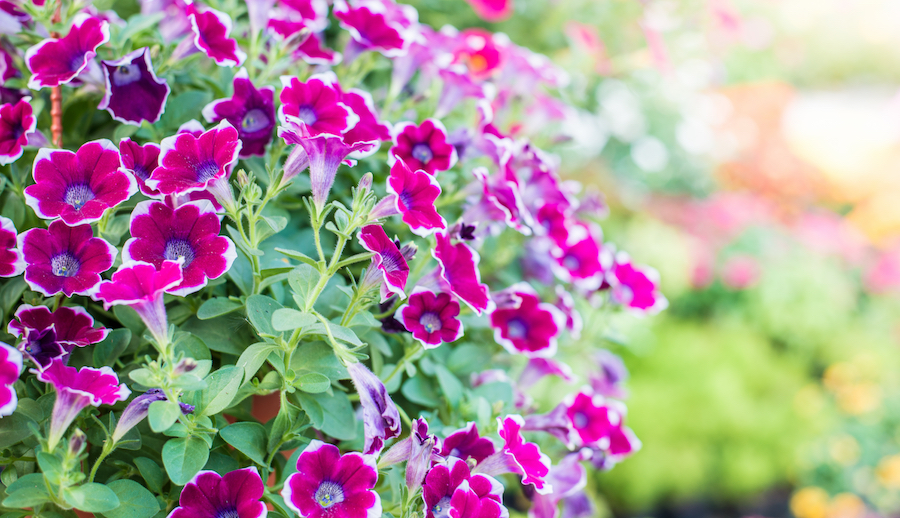Love your summer garden in July
Top jobs for the month from Mark Sage, Head of Horticulture at Wyevale Garden Centres
Summer’s in full swing and the garden’s looking great!
My jobs for the month are mainly about maintenance – simple tasks to keep your garden beautiful throughout the summer months. You’ll find everything you need at your local Wyevale Garden Centre. I hope my jobs for July will help you create a stunning summer garden.
Keep the colour coming
If you haven’t already planted your summer bedding, it’s still not too late. Favourites like begonia, Busy Lizzie and petunia are all great choices for your beds, pots and baskets.
Keep existing colour coming by cutting back faded flowers on perennials like lupin, geranium and delphinium. This will encourage new growth and more flowers later in the summer. And don’t forget about colour indoors. If you have sweet peas in your garden, cut some for the house and luxuriate in their gorgeous scent.
While you’re busy snipping, why not take the opportunity to create your own stock of perennials like fuchsia? It’s a great money-saver. Simply snip off new shoots just below a leaf, then plant in a pot. Water well and they’ll take root within a few days.
Pots, baskets and containers you’ve already planted may start to look a bit straggly at this time of year. So take your secateurs and tidy up any untidy shoots. Now that they’ve grown, the plants may also be crowding each other, so it’s a good idea to thin them out if necessary to give them room to breathe.
If you planted a tall-growing variety of dahlia back in April, they’ll need a little support now. Their blooms can be heavy, causing the plant to droop, so stake them securely and make sure they’re facing the sun. You may also need to support chrysanthemums.
Deadheading roses (removing old, faded flowers) won’t just encourage the growth of new blooms, it’ll also keep your plant looking good. You can also deadhead bedding plants such as pansies and viola.
Planning ahead, now’s the time to plant your autumn-flowering bulbs. Crocus, gladioli and cyclamen are a hardy bunch and can be planted almost anywhere – in beds, in pots, under deciduous trees and shrubs, and even in lawns.
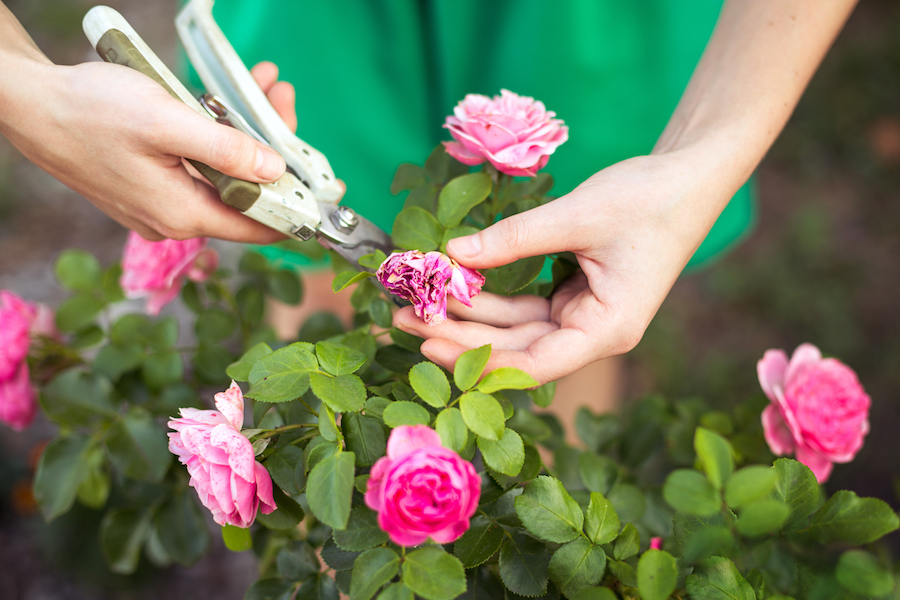
Summer holiday?
How do you keep plants regularly watered when you’re off on summer holiday, especially if you don’t have a neighbour you can ask? More mature plants may be okay for a few days, but tender, young plants that you’ve just planted out will simply shrivel away if they’re not watered daily.
A growbag ‘waterer’ could be the answer. These are just like ordinary growbags, but contain a reservoir that will supply water to your plants for up to 14 days. It’s especially handy for veg such as tomatoes, chillis and cucumbers.
These days, there are also computer-controlled automatic irrigation systems. Linked to your laptop, you can water your plants whenever you like, even if you’re miles away.
Remember, it’s especially important to regularly water larger plants like trees and shrubs that you planted back in spring, to see them through the summer.
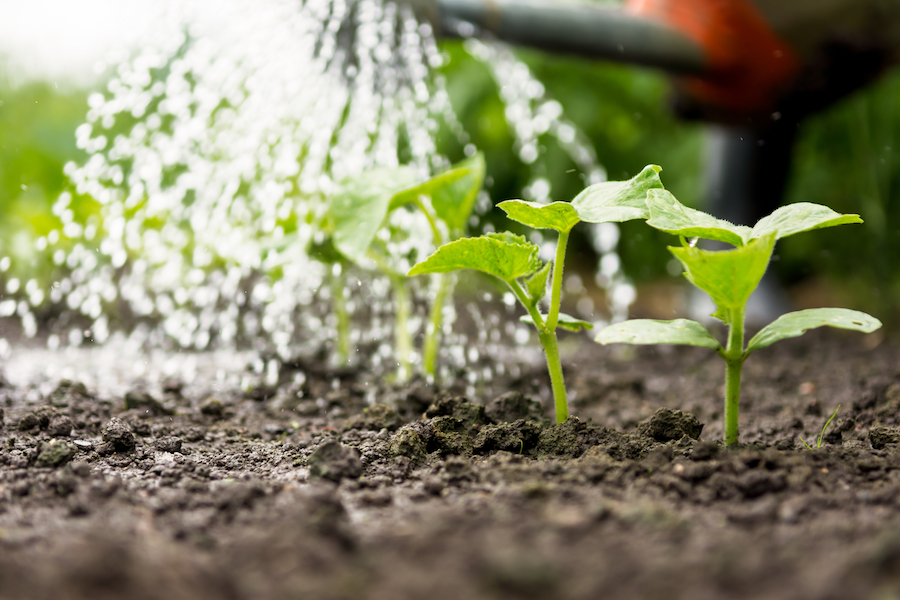 In your edible garden
In your edible garden
It’s busy in the veg patch, too. You’ll be planting some fruit and vegetables and – just in time for your summer barbecue – harvesting others.
Early potatoes and onions, two staples of the veg garden, should be ready about now. But how do you know when they’re ready? With your spuds, simply lift one plant and if the potatoes are no more than marble-sized, leave the crop a little longer. It’s easy to spot when onions are ready – because the leaves turn yellow and flop over.
On the planting front, it’s time to plant out your autumn and winter brassica seedlings like cabbage, brussels sprouts and kale. They’ll be ready to harvest all the way through from October to next April.
There’s nothing quite like picking your own home-grown fruits. So be sure to thin out apples, pears and plums and remove damaged fruits for bigger, better crops in late-summer and autumn.
Raspberries are one of the most succulent fruits, and the summer-fruiting varieties should be ready to pick this month. You should also do a little bit of maintenance, by cutting old canes (the main shoot) right down to the ground. This will leave you with greener, younger shoots which have grown during the summer, ready for your next crop. Of course, summer is synonymous with that other favourite summer fruit, strawberries. After harvesting, you can remove the old leaves from your plants and also add new plants to your garden for next year.
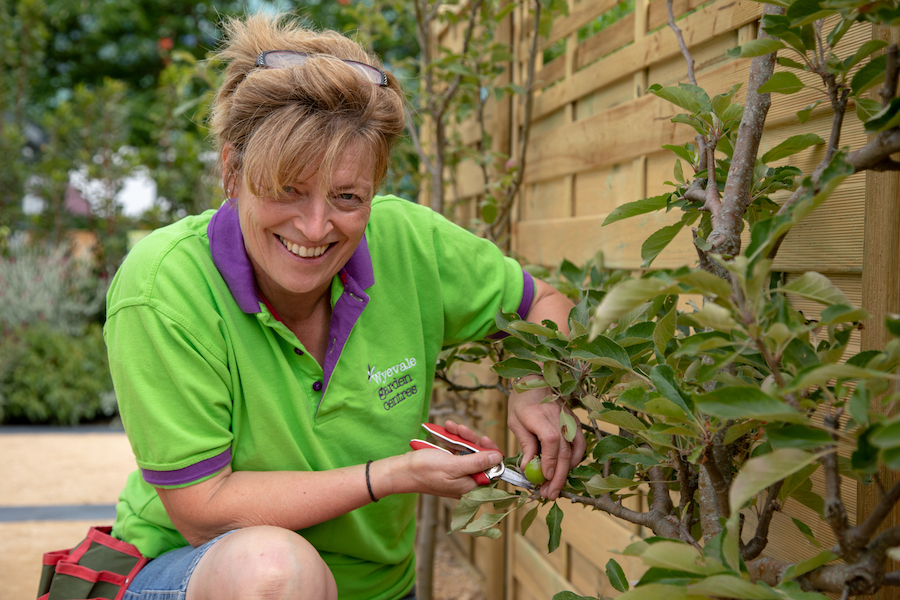 Lawn care
Lawn care
If you’ve followed a regular lawn care routine over the winter and spring months, you should by now be rewarded with a healthy green lush lawn.
The summer months are the time it grows the most, so, when you’re not simply enjoying your lawn, you’ll have to mow it, at least once a week. A good tip for this, to avoid going too short and scalping your lawn, is to stick to what’s known as the ‘third off’ rule. For example, only mow 4cm (2in) off 12cm-high grass. That way you’ll be left with a lawn that’s soft and bouncy.
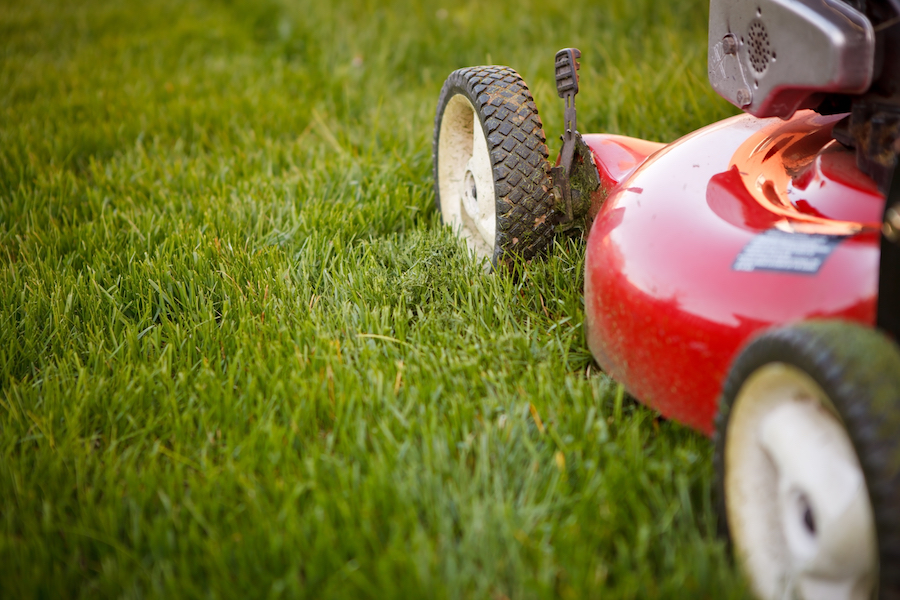
Grow wild
Summer’s all about bright colours and bold flowers – and if you’ve planted a garden full of poppies, sunflowers, foxgloves, honeysuckle and hollyhocks, all pollen-rich plants, they’ll be as attractive to bees and butterflies as they are to you. As I said at the beginning of the article, there’s still time to plant bedding and, if you happen to live in a city flat with only a modest balcony, using pots is a sure-fire way to attract insects to your urban space.
Birds still need feeding in summer, since they’re busy raising their young. The RSPB recommends little and often, and says that, although birds probably won’t eat quite as much as during the colder months, continue to give them your support and top up feeders and water every day.
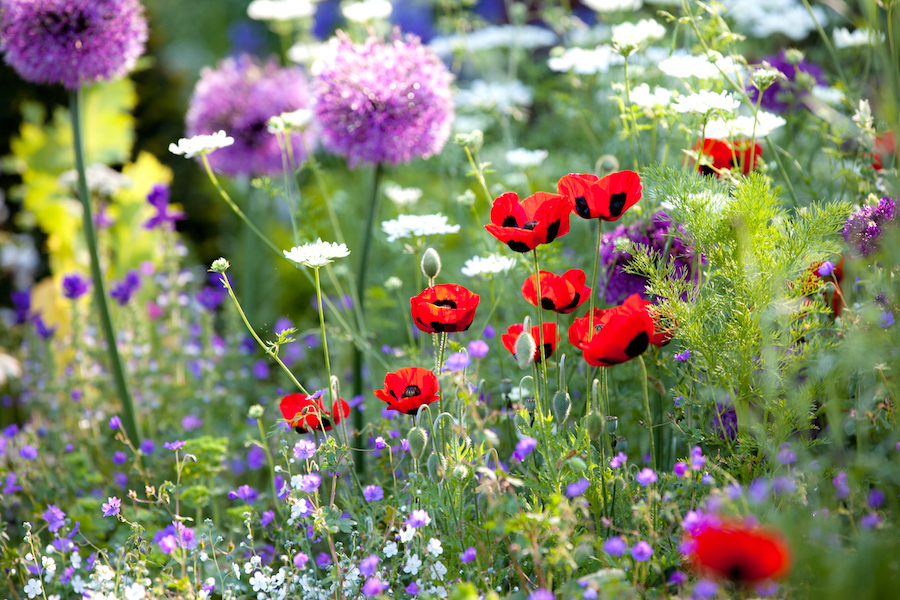
Enjoy your summer!
Latest posts by Wyevale Garden Centres (see all)
- Love your summer garden in July - July 1, 2018
- In June, it’s time to enjoy your summer garden - June 1, 2018
- Get your garden summer-ready in May - May 2, 2018
- In April, spring is beginning to bloom - April 18, 2018








